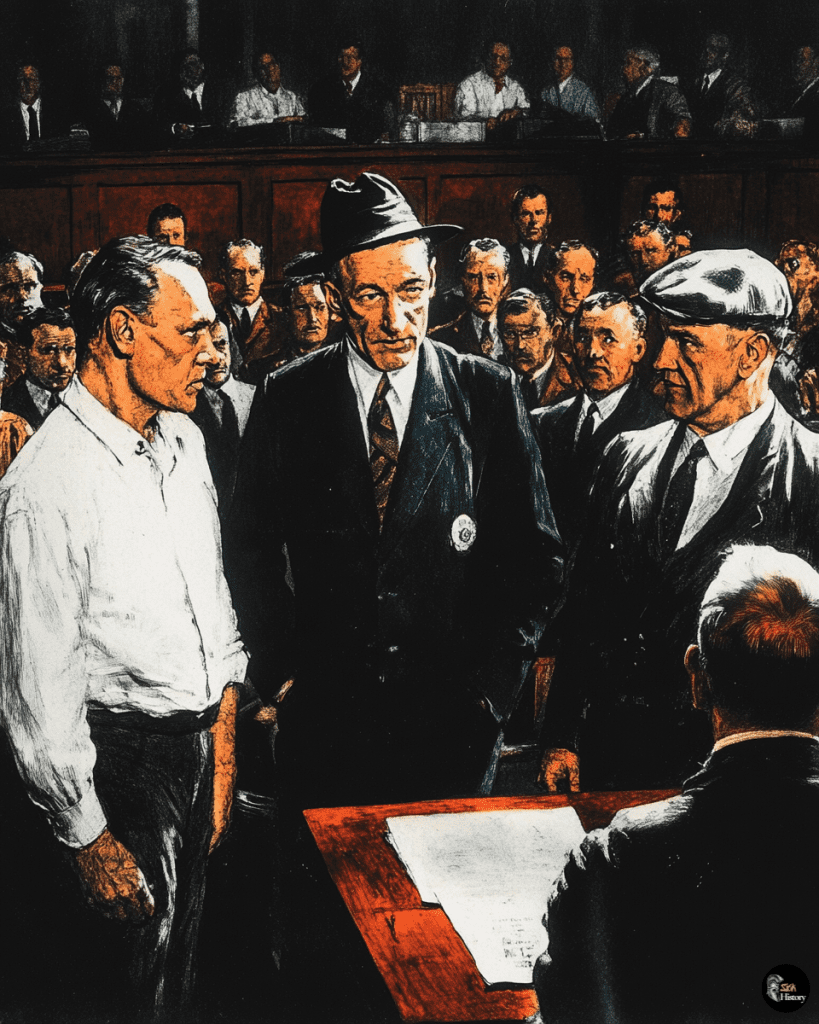The Scopes Monkey Trial of 1925 is a pivotal moment in American legal and educational history. This high-profile case, formally known as The State of Tennessee v. John Thomas Scopes, occurred in Dayton, Tennessee.
The trial centered around the Butler Act, which made it illegal to teach human evolution in any state-funded school.
The case pitted two renowned figures against each other: William Jennings Bryan for the prosecution and Clarence Darrow for the defense.
John Scopes, a high school biology teacher, was accused of violating the law by teaching evolutionary theory. The American Civil Liberties Union (ACLU) offered to defend any teacher willing to challenge the Act, setting the stage for this landmark trial.
The Scopes trial, often dubbed the “Trial of the Century,” captured national attention and sparked intense debate over teaching evolution in classrooms.
It highlighted the ongoing tension between science and religion in American education. The trial’s outcome would have far-reaching implications for interpreting the Bible, scientific education, and the separation of church and state.
Historical Context and Origins of the Scopes Trial
The Scopes Trial emerged from a clash between scientific progress and religious traditionalism in 1920s America. It centered on teaching evolution in public schools, pitting constitutional rights against state laws in a highly publicized legal battle.
Butler Act and Tennessee State Law
In March 1925, Tennessee passed the Butler Act, prohibiting the teaching of human evolution in public schools. The law specifically banned instruction that denied the biblical account of human creation. It imposed fines on teachers who violated this restriction.
Governor Austin Peay signed the bill into law despite personal reservations. He believed it would not be enforced.
The Butler Act reflected growing concerns among religious conservatives about the spread of evolutionary theory in education.
Several other states considered similar legislation during this period. The Tennessee law became a focal point for the national debate on science education.
The Rise of the American Civil Liberties Union (ACLU)
The American Civil Liberties Union saw the Butler Act as an opportunity to challenge restrictions on academic freedom. Founded in 1920, the ACLU aimed to defend constitutional rights, including freedom of speech and religion.
In May 1925, the organization placed advertisements in Tennessee newspapers. They sought a teacher willing to test the law’s constitutionality. The ACLU offered legal support for anyone arrested under the Butler Act.
This strategy aimed to provoke a high-profile trial. The ACLU hoped to draw national attention to what they viewed as an unconstitutional infringement on individual liberties and scientific education.
John Scopes and the Challenge to Teach Evolution
John T. Scopes, a 24-year-old science teacher in Dayton, Tennessee, agreed to participate in the ACLU’s test case. Scopes taught biology at Rhea County Central High School, using a state-approved textbook that included evolutionary theory.
Seeing an opportunity for publicity, local businessmen encouraged Scopes to admit to teaching evolution.
On May 5, 1925, Scopes was arrested and charged with violating the Butler Act.
The Scopes Trial Proceedings
The Scopes Trial, held in 1925, was a pivotal legal battle pitting scientific teachings against religious beliefs. It attracted nationwide attention and featured dramatic courtroom confrontations between prominent figures.
Key Figures: William Jennings Bryan and Clarence Darrow
William Jennings Bryan, a three-time Democratic presidential nominee, led the prosecution. He was a staunch defender of biblical literalism and opposed the teaching of evolution.
Clarence Darrow, a renowned defense attorney, represented John Scopes. Darrow was known for taking on controversial cases and championing civil liberties.
The clash between these two legal titans drew immense public interest. Their opposing views on science and religion set the stage for a dramatic courtroom showdown.
The Trial in Dayton, Rhea County Courthouse
The trial took place in Dayton, Tennessee, from July 10 to July 21, 1925. It was held at the Rhea County Courthouse, which became the center of national attention.
Intense debates on evolution, religion, and academic freedom marked the proceedings.
Darrow challenged the constitutionality of the Butler Act, which prohibited teaching evolution in Tennessee schools.
Bryan was questioned by Darrow about biblical interpretation. This exchange became one of the trial’s most memorable moments, exposing the difficulties of literal biblical interpretation.
The Verdict and its Implications
The jury found John Scopes guilty of violating the Butler Act and fined him $100, the minimum penalty under the law.
This verdict upheld the ban on teaching evolution in Tennessee public schools. It highlighted the ongoing tension between scientific advancement and religious beliefs in American education.
The trial’s outcome sparked debates nationwide about academic freedom and the role of religion in public education. It became a symbol of the broader cultural divide in 1920s America.
Appeal to the Tennessee Supreme Court
Scopes’ legal team appealed the verdict to the Tennessee Supreme Court. The court overturned Scopes’ conviction on a technicality in 1927.
The court found that the jury, not the judge, should have set the fine. This ruling effectively ended the case without addressing the constitutional issues raised during the trial.
Despite overturning the conviction, the court upheld the Butler Act. This decision left the ban on teaching evolution in place, maintaining the legal status quo in Tennessee.

